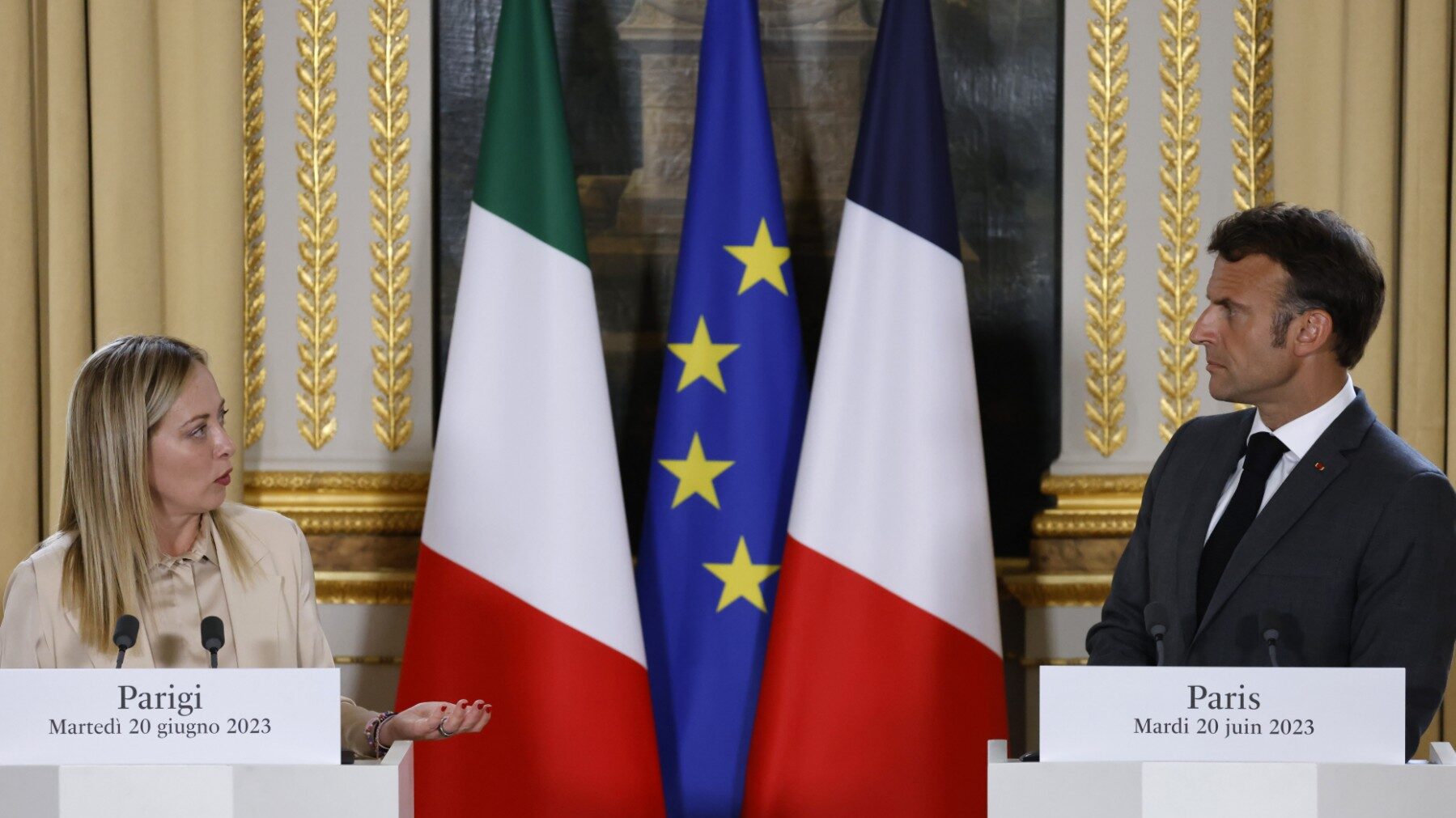
Photo: Ludovic MARIN / AFP
On a trip to Paris to discuss Rome’s bid for the 2030 World Expo, Italian Prime Minister Giorgia Meloni on Tuesday, June 20th, had an opportunity to meet with President Emmanuel Macron. The meeting provided a chance to try to resolve the many misunderstandings and tensions that have built up between France and Italy over the last few months, particularly on immigration issues.
Although Meloni has already met Macron in Rome, this is the first official visit by the head of the Italian government to France since her election in September 2022. There are many areas of friction between the two countries, from the management of migratory flows to relations with North African countries. President Macron is not as friendly with his Italian counterpart as he was with her predecessor Mario Draghi, and in recent months, the French Interior Minister Gérald Darmanin has made a number of provocative statements about Giorgia Meloni. After a tug-of-war over the reception of the migrant boat Ocean Viking, Darmanin deemed Meloni “incapable of solving the migration problems on which she was elected.”
Since these stormy exchanges, relations have improved, thanks in particular to the visit of French Foreign Minister Catherine Colonna to Rome, but tensions remain at both national and European levels.
Emmanuel Macron is particularly wary of Meloni in the run-up to the European Parliament elections in 2024. Even if the Italian leader has adapted, the French president is wary of an offensive from Meloni to try to reproduce at the European level the coalition that brought her to power in Italy by allying herself with the EPP. The inevitable consequence of this would be to weaken the position of the Renew Europe group that Macron supports. On the domestic front, Macron is also worried by the example set by Meloni for the French Right, and fears above all an Italian-style scenario in which a coalition of right-wing parties finally comes to fruition in France.
It was time for appeasement—even if, on the issue of the World Expo, France is supporting Riyadh’s bid against that of Rome. In a joint press conference, Emmanuel Macron launched into a lyrical declaration to underline the common destiny of the two so-called Latin sisters, and celebrated a friendship “that sometimes allows controversy and disagreement to come to the fore, but always within a respectful framework, because it is part of a history that is bigger than us, more profound, that has nourished our imaginations, our artists and our collective adventures.”
In Paris, France and Italy used one of their points of convergence—support for Ukraine—to stage their rapprochement and their desire for “peaceful” collaboration, by presenting their joint ‘gift’ to Ukraine, the Franco-Italian Mamba anti-aircraft defence system. Other areas of agreement have also emerged: in the nuclear battle pitting France against Germany, Italy is tempted to move forward alongside France to defend atomic energy.
On the explosive issue of immigration, the two leaders played it safe and emphasised the importance of “dialogue,” insisting as much on the “bilateral” as the “multilateral.” “It is essential that Rome and Paris continue to work both bilaterally and multilaterally,” insisted Meloni, while Emmanuel Macron called for a “frank, ambitious, demanding dialogue” between the two countries, beyond “controversies” and “disagreements.”
They agreed on the need to control external borders and stressed the importance of combating networks of smugglers and traffickers, in the light of recent tragedies in the Mediterranean. For Macron, it is necessary to “work better with countries of transit and origin to prevent inflows.” He highlighted France’s recent “Tunisian initiative,” consisting of €25 million in aid to the Tunisian government to help it secure its borders.
Giorgia Meloni announced her intention to put these issues on the table at the next European Council.
